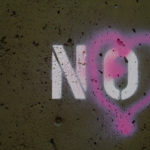I wanted to drop what I was doing, stand up on the podium, and applaud her in front of 90 students.
At the time, I was teaching a Constitutional Law class in a big lecture hall. We were covering the intricacies of the Commerce Clause, and at one point during the discussion, I paused and asked if there were any questions. I was met with silence and was about to move on when a hand shot up in the air.
“I didn’t get anything from that,” the student said, with visible trepidation. “I’m completely lost.”
I wanted to give her a standing ovation.
This was an act of courage. She did what most of us don’t dare do: Admit that we don’t know or we don’t understand in a crowd of peers who pride themselves on their intellectual powers.
This was an act of humility. When we utter those three dreaded words—I don’t know—our ego deflates, our mind opens, and our ears perk up.
This was also an act of compassion. By raising her hand, she was standing up for those fellow students who were inevitably in the same boat of confusion.
The problem with the modern world, as Bertrand Russell writes, is that “the stupid are cocksure while the intelligent are full of doubt.” We master the art of bluffing our way through life. We “fake it until we make it,” but we mostly just keep faking it. We deliver definitive answers with conviction even when we have nothing more than two minutes of Wikipedia knowledge on an issue.
Here’s the thing: You can’t learn what you think you already know. When you pretend to know the answer, you not only fool other people, but you also fool yourself. And as Richard Feynman says, “you are the easiest person to fool.”
I was recently interviewed on a podcast where the host asked me for my views on artificial intelligence. “Is it dangerous? Does it pose a threat to humanity?” he wanted to know. I fought the instinct to improvise an answer, took a deep breath, and said, “I don’t know.”
The host was baffled: “You don’t know?”
I repeated myself: “I don’t know. There are smart people on both sides of that issue, and I haven’t done enough research to give you a good answer.”
The host then gave me his version of a standing ovation: He said he’d never had a guest who said “I don’t know” on his podcast and thanked me for my honesty.
There’s a difference between the uncertainty that results from knowledge (from knowing what you don’t know) and the uncertainty that results from ignorance. Don’t turn into the cardinal from the play Galileo Galilei, who refuses to look through a telescope to avoid finding out that the planets revolve around the Sun. “I don’t know” shouldn’t mean “I don’t want to know.”
Even after he earned a Nobel Prize, Richard Feynman thought of himself as a “confused ape” and approached everything around him with the same level of curiosity, which enabled him to see nuances that others dismissed. “I think it’s much more interesting to live not knowing,” he said, “than to have answers which might be wrong.”
It’s far better to be uncomfortably uncertain than to be comfortably wrong.
Bold


